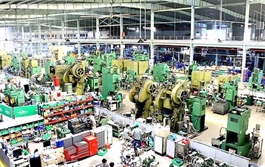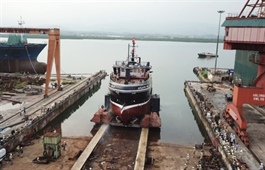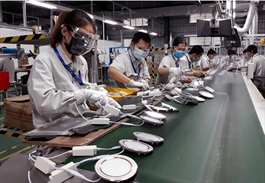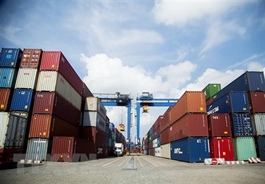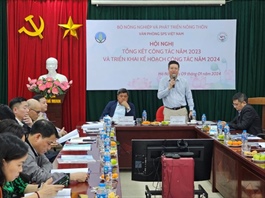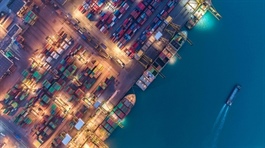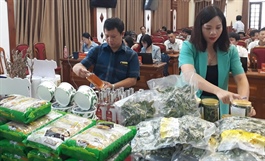Making producers responsible for recycling remains a challenge
Making producers responsible for recycling remains a challenge
Extended producer responsibility (EPR), to be implemented this year and expected to foster the recycling industry, remains a huge effort for Vietnamese businesses, experts said.
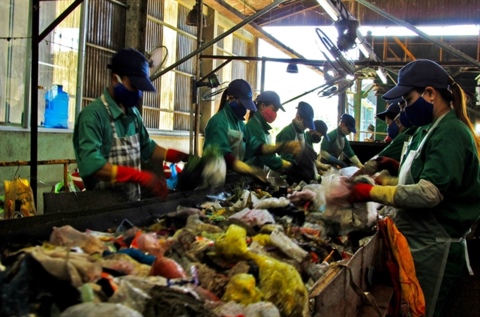
Despite challenges, the recycling industry hopes to grow this year with the implementation of the extended producer responsibility. — VNA/VNS Photo Huỳnh Thế Anh |
They pointed to the sporadic and primitive recycling industry and a lack of regulations on recycling costs.
EPR is a practice that places the responsibility for product disposal on manufacturers and exporters.
It now applies to six products, electrical and electronic, tubes and tyres, batteries, lubricants, electric vehicles, and packaging of all kinds.
Manufacturers can recycle themselves, authorise another entity to do it or make a contribution to the Vietnam Environmental Protection Fund to support recycling.
Most Vietnamese businesses choose the third option since it is the simplest and cheapest method, head of the Institute for Circular Economy Development, Prof Dr Nguyễn Hồng Quân, told Tuổi Trẻ (Youth) newspaper.
The contribution is calculated based on the formula F = R x V x Fs, in which F stands for contribution, R for the mandatory recycling rate, V for the quantity of products/packaging materials, and Fs for the total recycling cost per unit weight.
But the Fs values for various products and packaging materials have yet to be fixed.
Undefined Fs values make it hard for businesses to make financial forecasts for the year since recycling costs are significant and could influence their operations, Chu Thị Kim Thanh, director of operations at PRO Việt Nam Packaging Recycling JSC, a subsidiary of the Việt Nam Packaging Recycling Organisation (PRO Việt Nam), said.
Fs values are expected to be relatively high, making life even harder for manufacturers, especially of plastic and aluminium products.
Phan Tuấn Hùng, head of legal affairs at the Ministry of Natural Resources and Environment, said the Fs values have been proposed to the Government and would be announced before the end of January.
They are determined based on surveys conducted at over 70 recycling facilities.
“If Fs values are too low, they cannot meet the average recycling costs.”
There needs to be an expansion in recycling facilities, Dr Nguyễn Trung Thắng, deputy head of the Institute of Strategy and Policy on Natural Resources and Environment, said.
According to PRO Việt Nam, recycling villages and scrap-collecting clubs are still informal and small, and their outdated technologies are a threat to the environment.
Hứa Phú Doãn, deputy chairman of the Việt Nam Waste Recycling Association, said the industry’s profitability is relatively low, which dissuades businesses from investing in new recycling technologies and machinery.
PRO said Việt Nam badly lacks standard recycling infrastructure, and needs clear policies on waste management; plans, regulations, and instructions on waste collection, and a structured specialisation process for the industry.
It is also important to allocate public funds and persuade businesses to invest in modern technologies, and undertake promotional activities to popularise recycled products, it said.
Lê Anh, director of sustainable development at the Duy Tân Plastic Recycling Corporation, said since the Vietnamese consumer has not paid much attention to green, recycled products, it is vital to increase communication activities and promotions, and offer tax incentives to support waste collection and ensure steady supply for recycling facilities.



